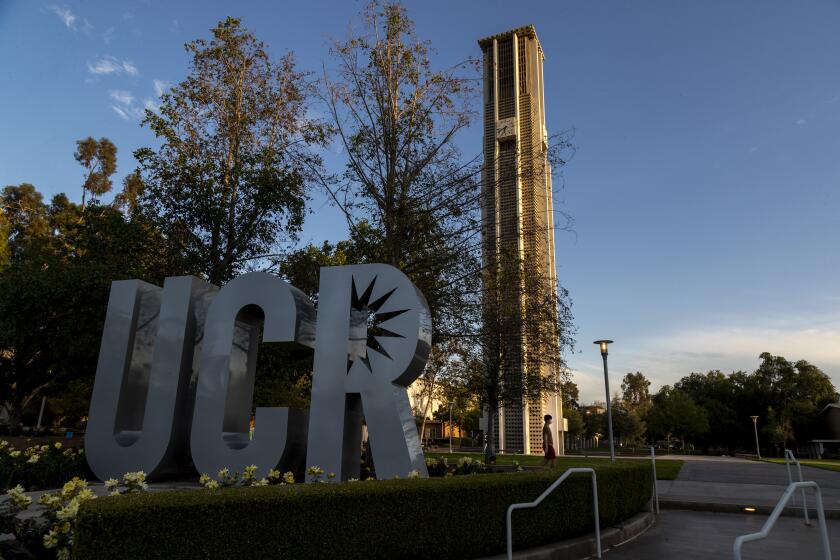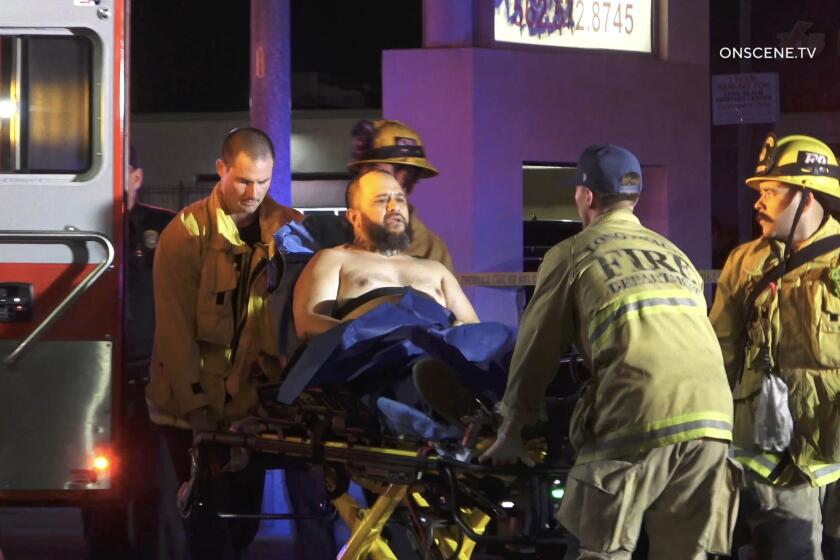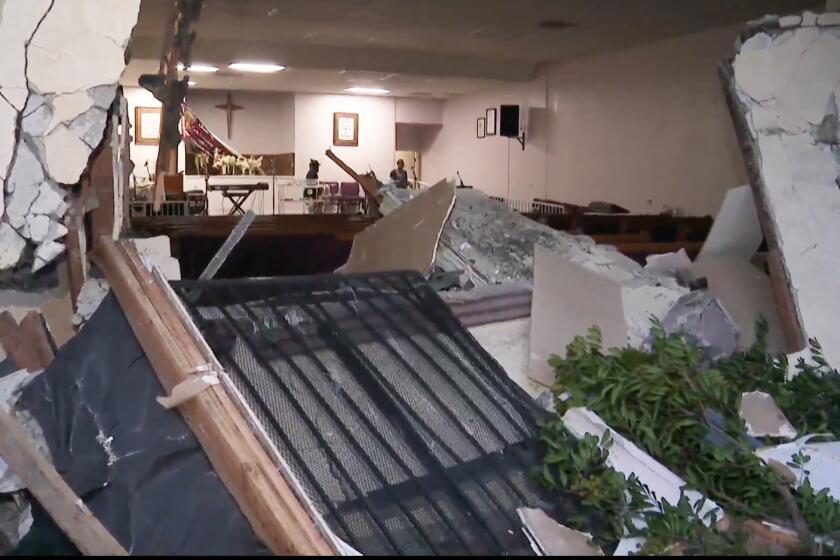Law on Prosecuting Parents of Delinquents Is Upheld : Crime: State justices reject challenge to measure that sets liability if ‘reasonable’ control of children is lacking.
Endorsing a controversial anti-gang tactic, the California Supreme Court decided Thursday that parents may be prosecuted and sent to jail if they do not take decisive steps to prevent their children from committing crimes.
Acting in a Los Angeles case, the court upheld a state law that holds parents liable if their failure to exercise “reasonable care, supervision and control” permits their offspring to become delinquent.
The statute had been challenged as unconstitutional on the grounds that it is excessively vague--failing to clearly define a parent’s duty--and gives authorities too much discretion in judging child raising techniques.
But the court disagreed in a unanimous decision. The law “does not trap the innocent,” Justice Stanley Mosk wrote, but instead sets a standard of behavior that a reasonable parent can understand.
Prosecutors hailed the decision and said they will use the law as a stick against parents who are not making a clear effort to control their wayward children.
“We are not anxious to put parents in jail,” Los Angeles County Dist. Atty. Gilbert Garcetti said Thursday. “But we in law enforcement cannot do it alone, and we must hold parents accountable for their children.”
City Atty. James K. Hahn added that the law “does not make it a crime for a parent to have tried and failed to keep a child out of gangs. What it does do is recognize that a parent’s inaction in the face of criminal acts . . . by their child is tantamount to approval in that youngster’s eyes.”
Lawyers for the American Civil Liberties Union, which challenged the law, expressed disappointment and predicted that the tactic would do little to curb gang activity and other forms of juvenile crime.
“It’s difficult to understand what good putting a parent in jail will do,” said Carol Sobel, who handled the case for the ACLU office in Los Angeles. “Everyone feels frustration with the rising violence in our culture. . . . But it’s unfair to blame poor parents for something that is a failure of our society as a whole.”
Sobel predicted that the law would be used to unfairly target low-income parents in gang-infested areas and said she would bring a new challenge if such a pattern emerges.
“If a kid in Lakewood joins the Spur Posse and rapes 10-year-olds, we will assume he is incorrigible and that the parents did all they could,” Sobel said. “But when it’s a kid in South-Central doing street crime, it’s a different story.”
The law at issue was passed by the Legislature in 1988 as part of a package of anti-gang measures drafted by Hahn and former Los Angeles County Dist. Atty. Ira Reiner. The maximum penalty is a year in jail and a $2,500 fine.
The statute was first used in the May, 1989, arrest of a South-Central woman, Gloria Williams, who was charged with failing to control a son found guilty in the gang rape of a 12-year-old girl.
Police based their allegations on photographs showing Williams flashing gang signs and posing with members of the Crips gang. But charges were dropped after it was learned that she had completed a parenting class. Under the law, people can avoid prosecution if they complete such a course.
Shortly after the Williams case, the ACLU sued, arguing that the law is unconstitutionally vague, leaving parents confused about what measures they must take to avoid prosecution.
A state Court of Appeal agreed, declaring that the law invited “abuse and mischief” by prosecutors, but the high court reversed that ruling with Thursday’s decision.
More to Read
Start your day right
Sign up for Essential California for news, features and recommendations from the L.A. Times and beyond in your inbox six days a week.
You may occasionally receive promotional content from the Los Angeles Times.





